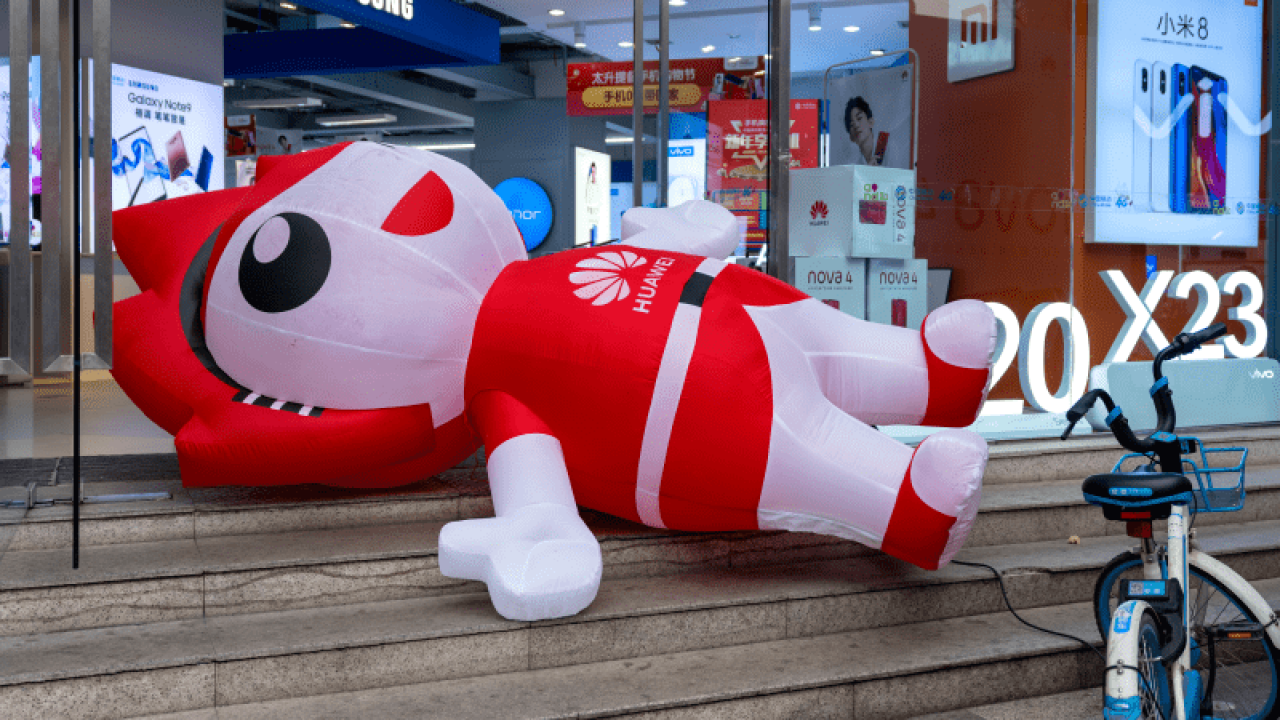Blog: Will Huawei Survive?
Article By : Dylan McGrath

We knew it was going to be bad. But could being placed on the Trump Administration's export blacklist actually be enough to put Huawei out of business?
It was clear from the very beginning that the Trump Administration's move to add Huawei to an export blacklist last month would have devastating consequences for the Chinese telecommunications giant. But in the weeks that followed, some industry insiders and analysts have questioned whether Huawei — the largest telecommunications company in the world and one of the largest companies in China — can even survive after being cut off from re-supply of U.S. chips and other components.
Huawei was known to have stockpiled a large number of chips over the past several months in anticipation of U.S. government action. Company CEO Ren Zhengfei initially said the U.S. government was updating Huawei's capabilities and declared that the ban would have no impact on Huawei's planned rollout of 5G technology.
But this week, Zhengfei acknowledged that the U.S. ban will hit Huawei's sales harder than he initially expected. Huawei slashed its revenue forecast for this year by as much as $30 billion, lowering its sales target to about $100 billion from previous estimates of $125 billion to $130 billion. The Bloomberg news service has reported that Huawei is expecting its international smartphone shipments to drop by some 40-60%.
Recommended
Huawei Ban May Prove to Haunt U.S.
"It's a disaster for Huawei," said Bill McClean, president of IC Insights, in a recent interview with EE Times. "I don't care how they try to spin it. If this extends for a year or two, they're out of business."
McClean and other analysts acknowledge that Huawei — currently the No. 2 supplier of handsets worldwide — could likely source many of the parts it needs from non-U.S. suppliers in China or other parts of the world, as long as South Korean memory chip vendors Samsung Electronics and SK Hynix continue to sell memory chips to the company. But many of the parts Huawei buys from U.S. firms are so dramatically superior to those available elsewhere in the world that they have a hard time seeing Huawei remaining competitive without them.
For example, Huawei has been on a drive to build more of its own chips to fill its needs, pushing subsidiary HiSilicon to design more advanced ARM-based processors such as the 10-nm Kirin SoC. But such chips are still well behind cutting-edge processors from the likes of Intel, and ARM has cut ties with Huawei in honor of the U.S. ban. (Because ARM develops software and other technology at its operations in the U.S., ARM has determined that it must comply with the ban).
The same can be said with many other chips that Huawei buys, including analog parts from Texas Instruments and RF chips from Qorvo, Broadcom and Skyworks, McClean said.

"There are thousands of discrete analog parts that they simply can't replace," McClean said. "There's not enough talent in the world, and that this point in time China has no major indigenous analog and mixed signal IC suppliers."
Of course, the most significant blow to Huawei's handset business is being cut off from updates of the Android operating system. Huawei is reportedly preparing to deploy its own Hongmeng operating system within the next nine months if needed.
But McClean and other analysts have suggested that Huawei's handsets will not be able to compete with handsets that run the latest version of Android, the most popular smartphone operating system in the world. McClean said a Huawei handset running Hongmeng is likely to suffer from the perception if not the reality that the OS is behind Android or that all of the bugs in the OS aren't quite worked out yet.
"People have other choices," McClean said. "They don't have to deal with Huawei. You just lose a little bit of differential advantage there and the rest of the guys will eat your lunch. You're done."
He added, "Maybe they can come out with products, but they're going to be a step down from the competition. And that's enough to put you out of business, too."
Subscribe to Newsletter
Test Qr code text s ss


